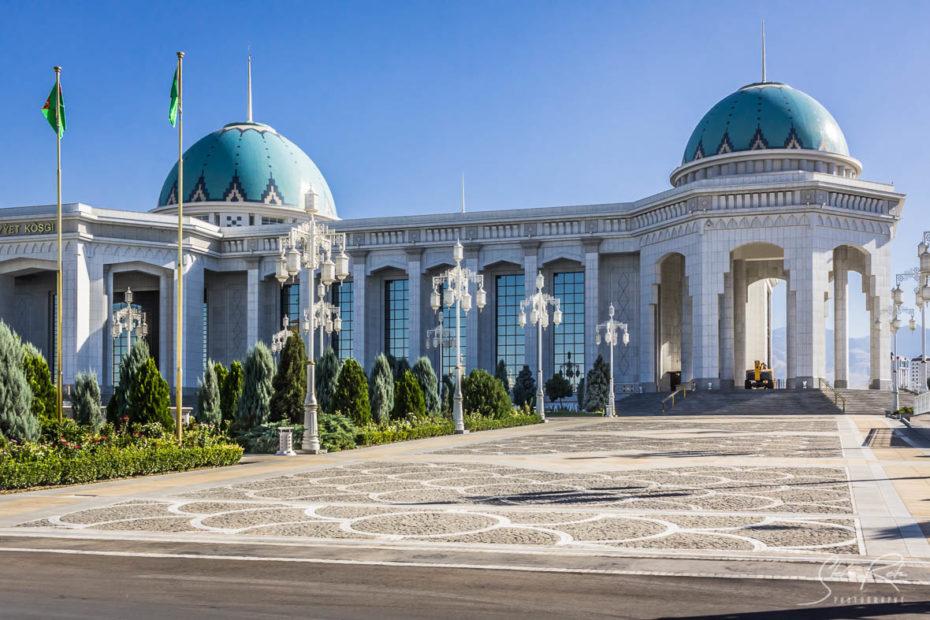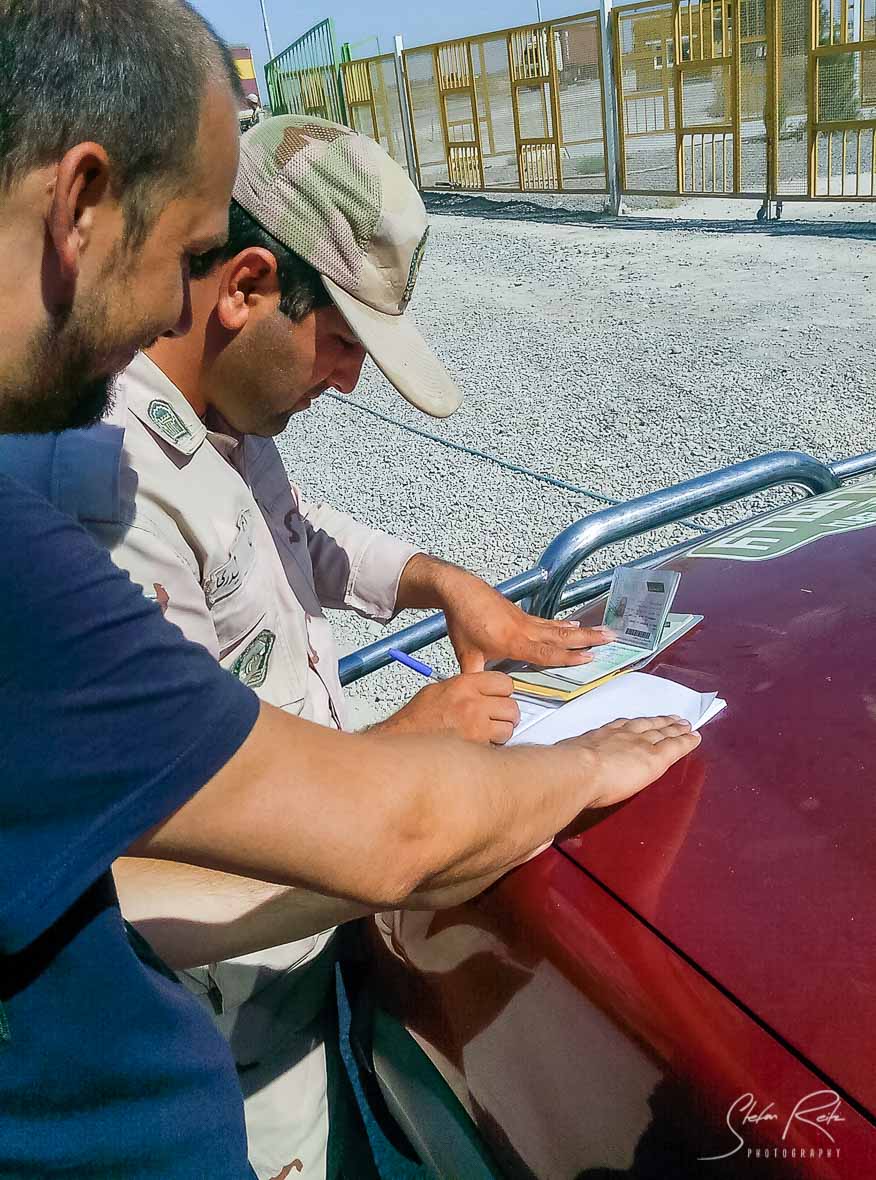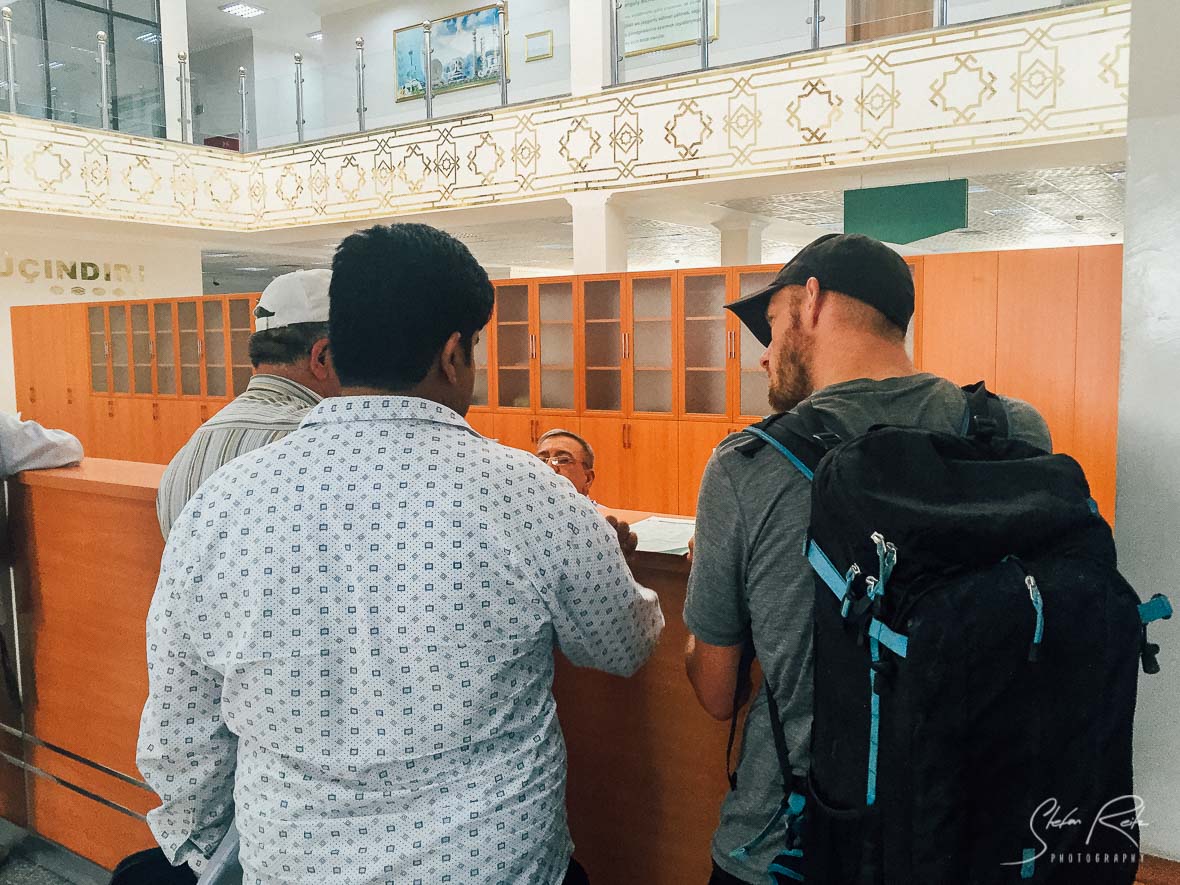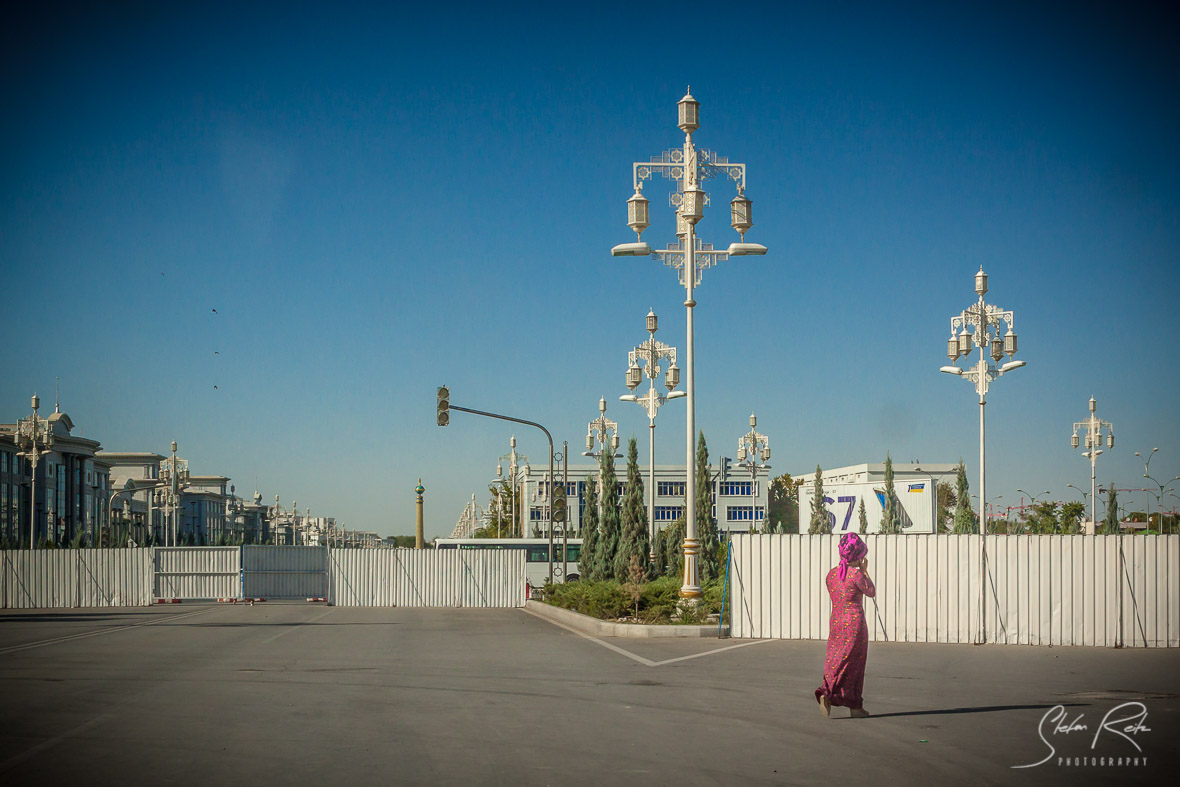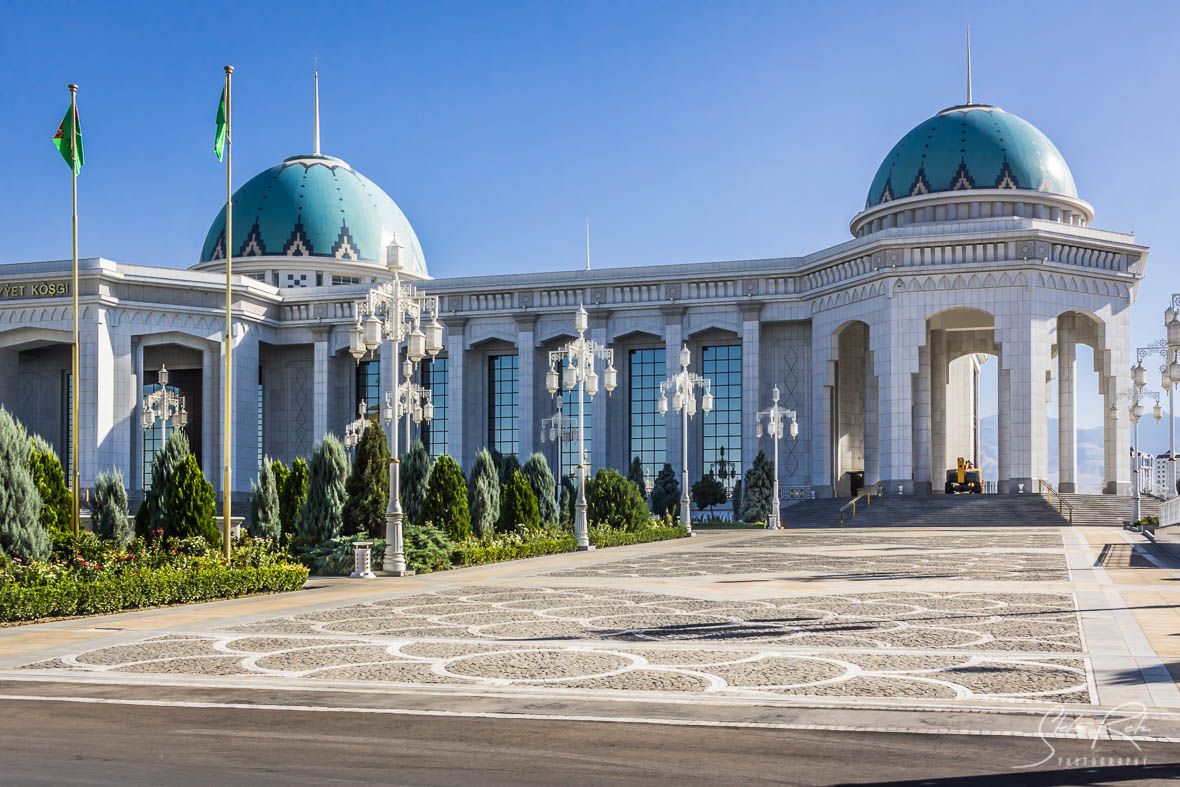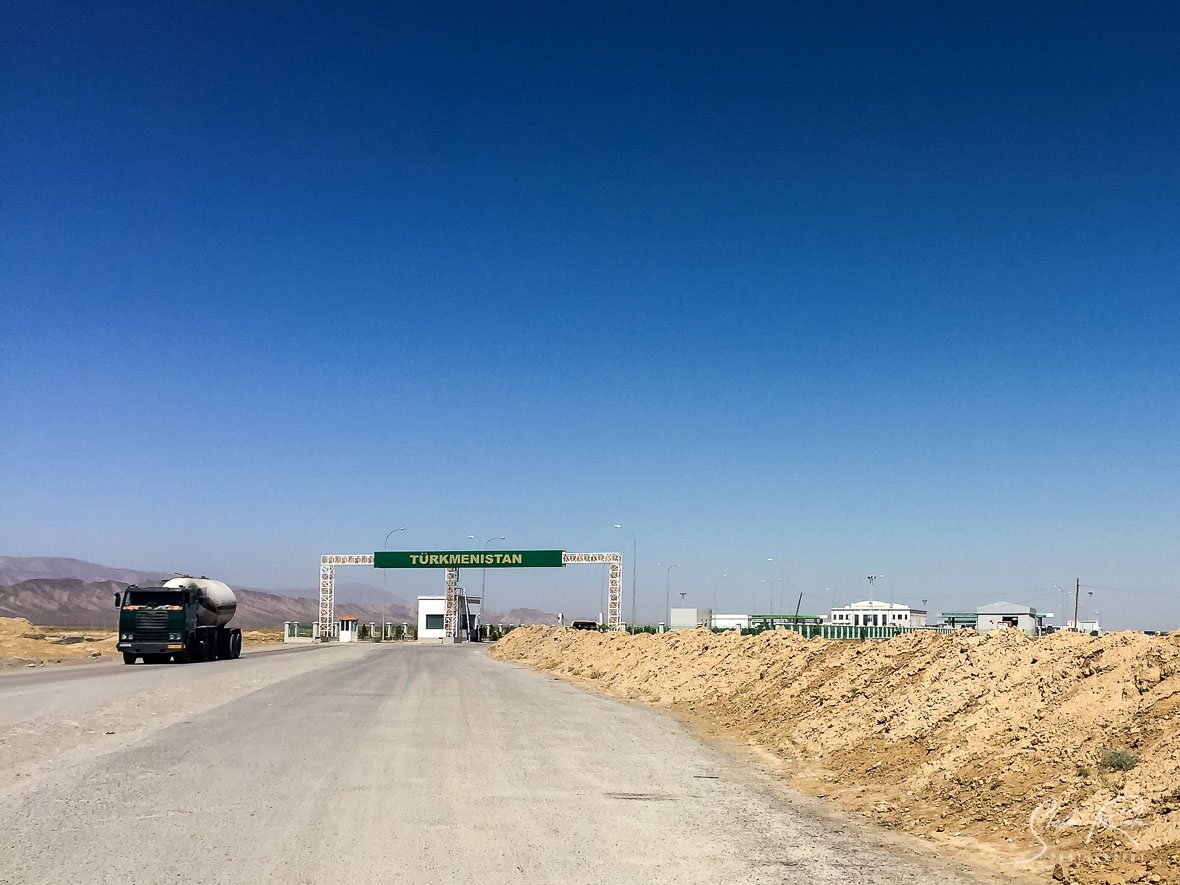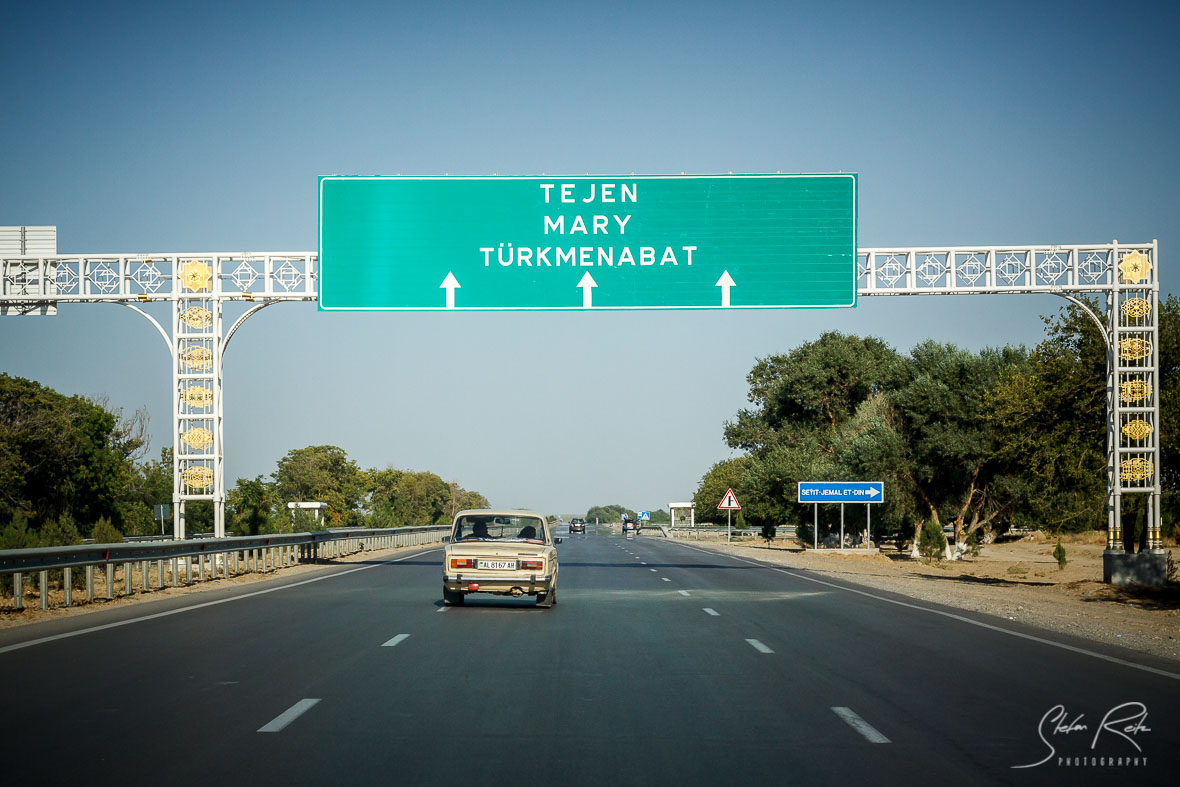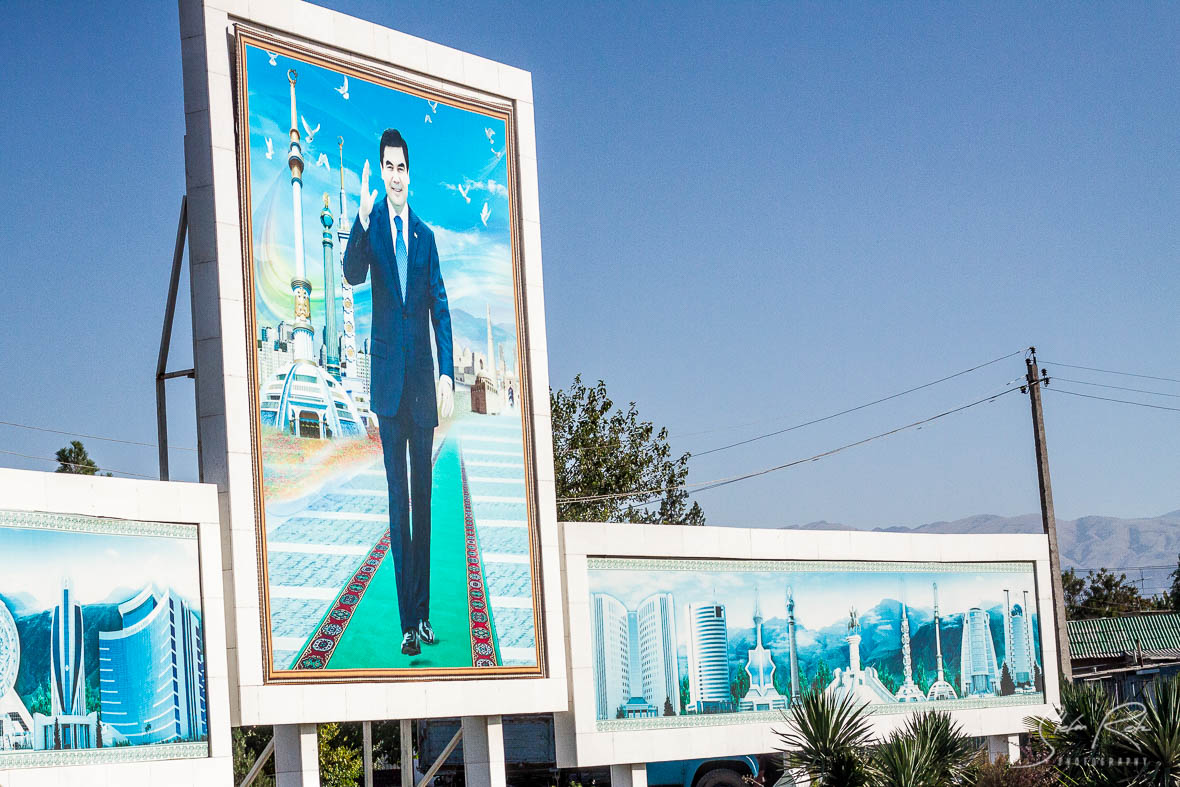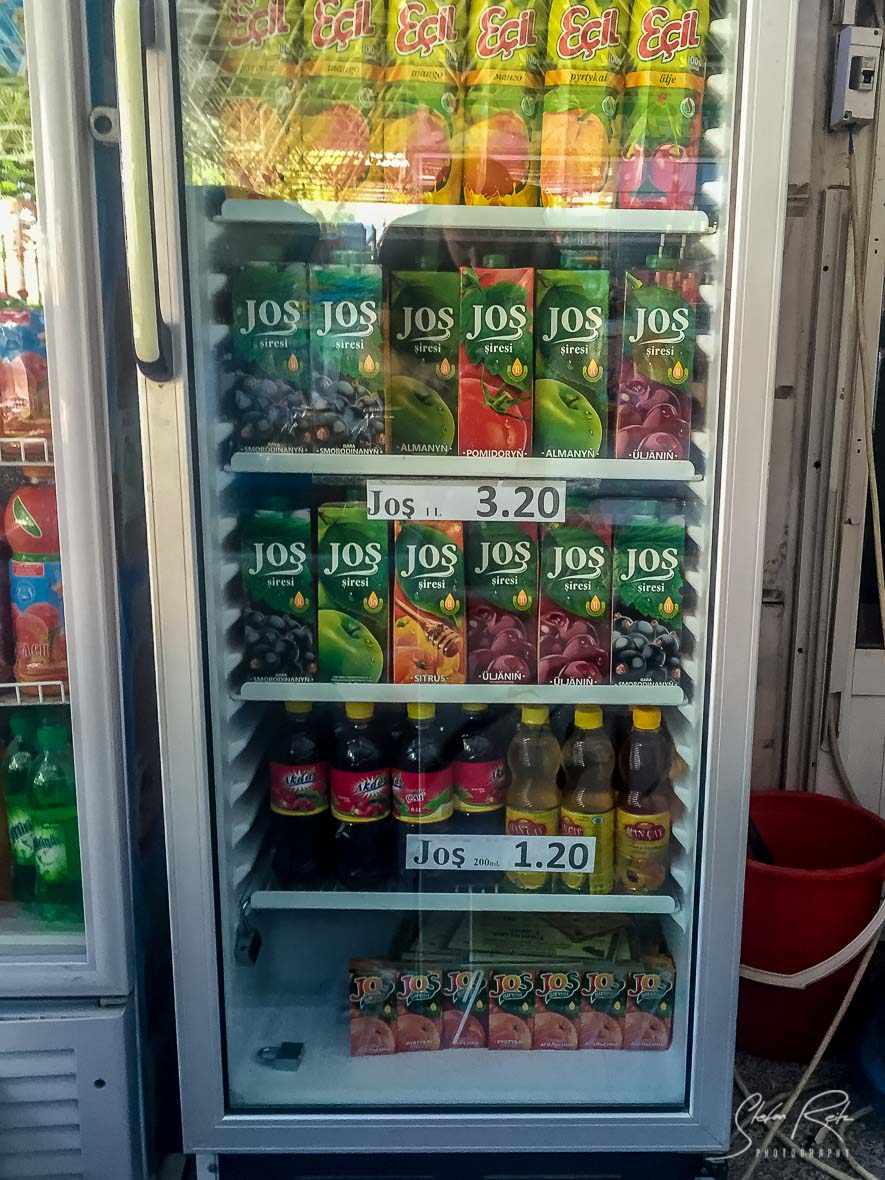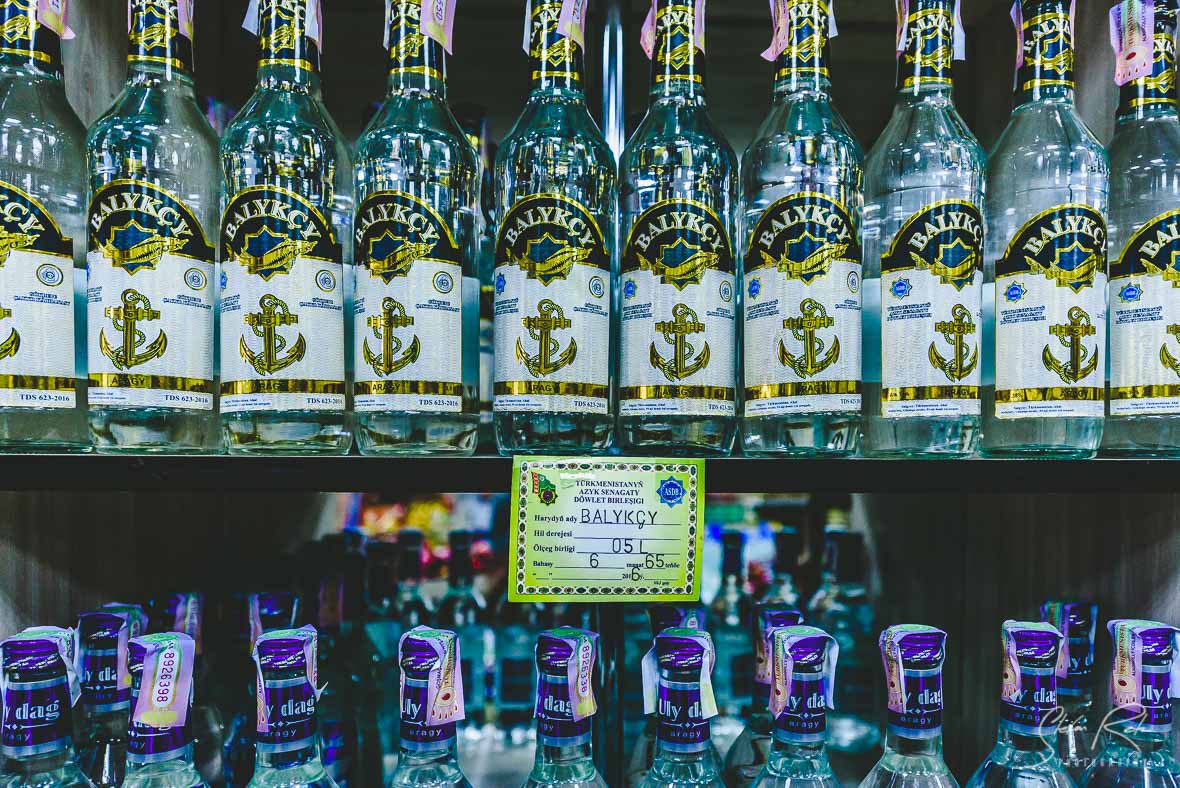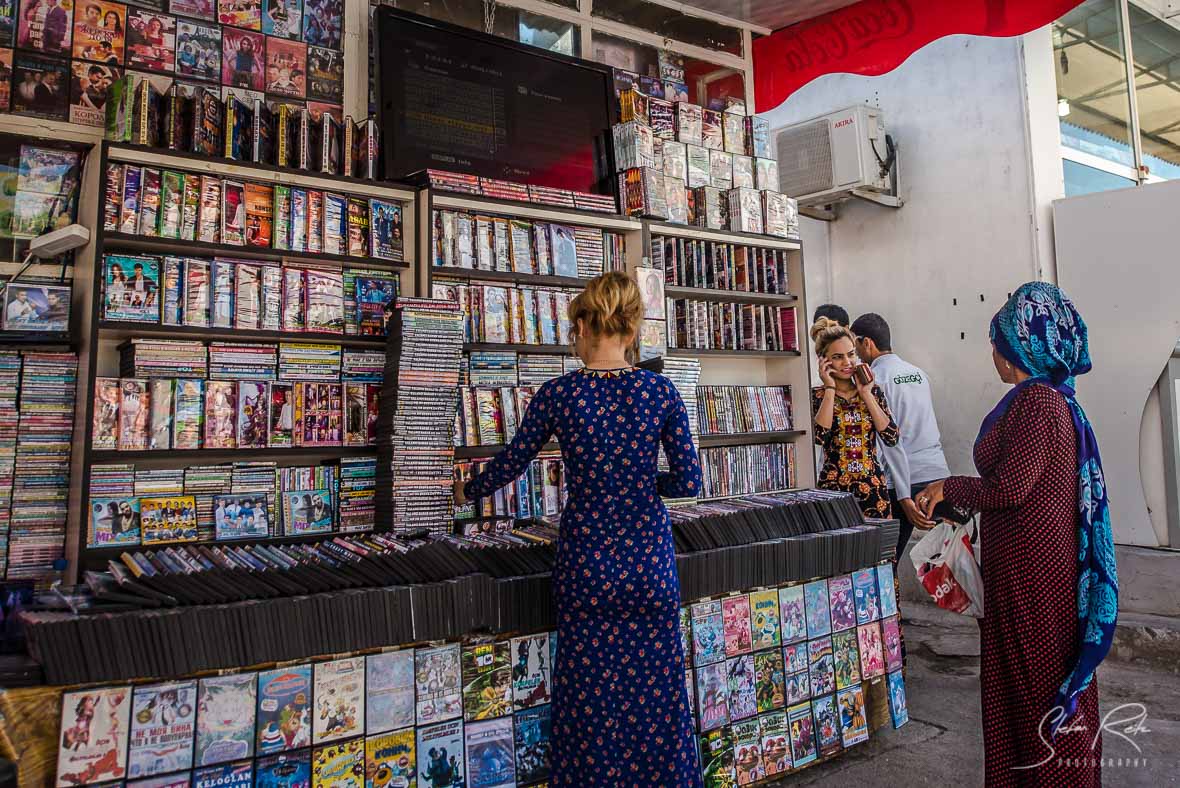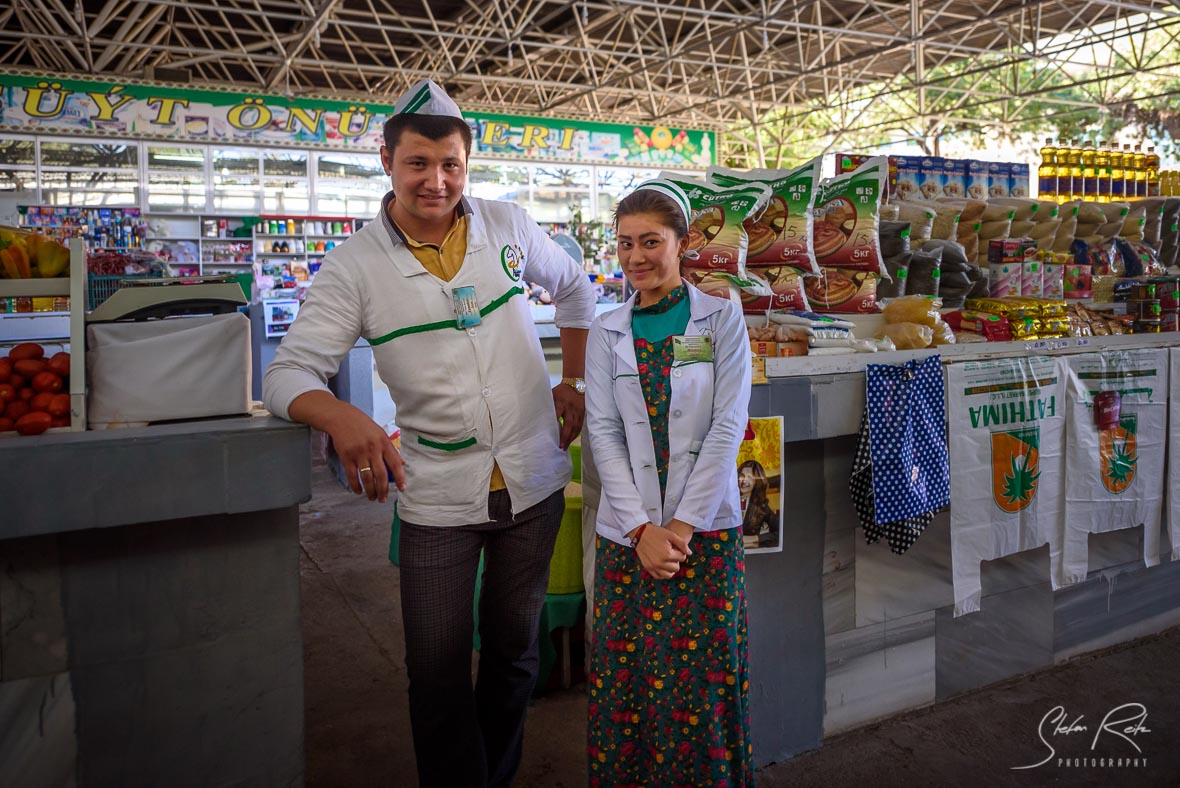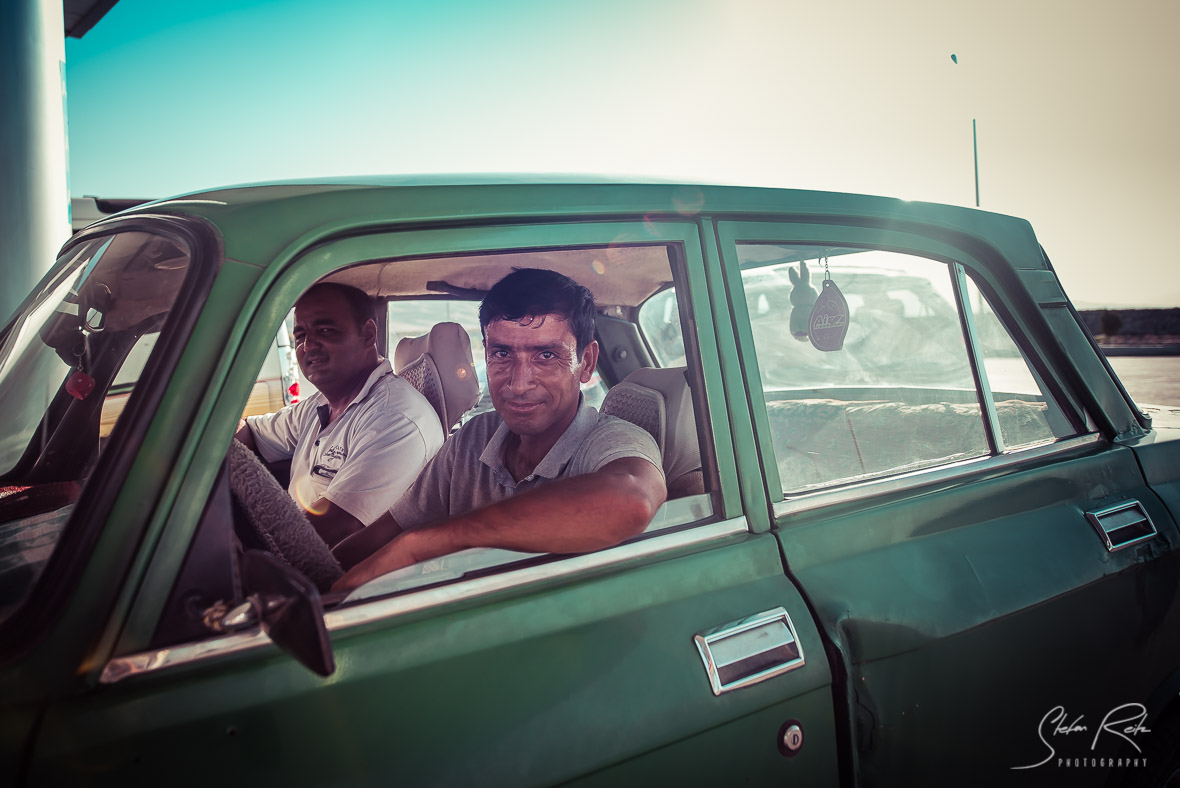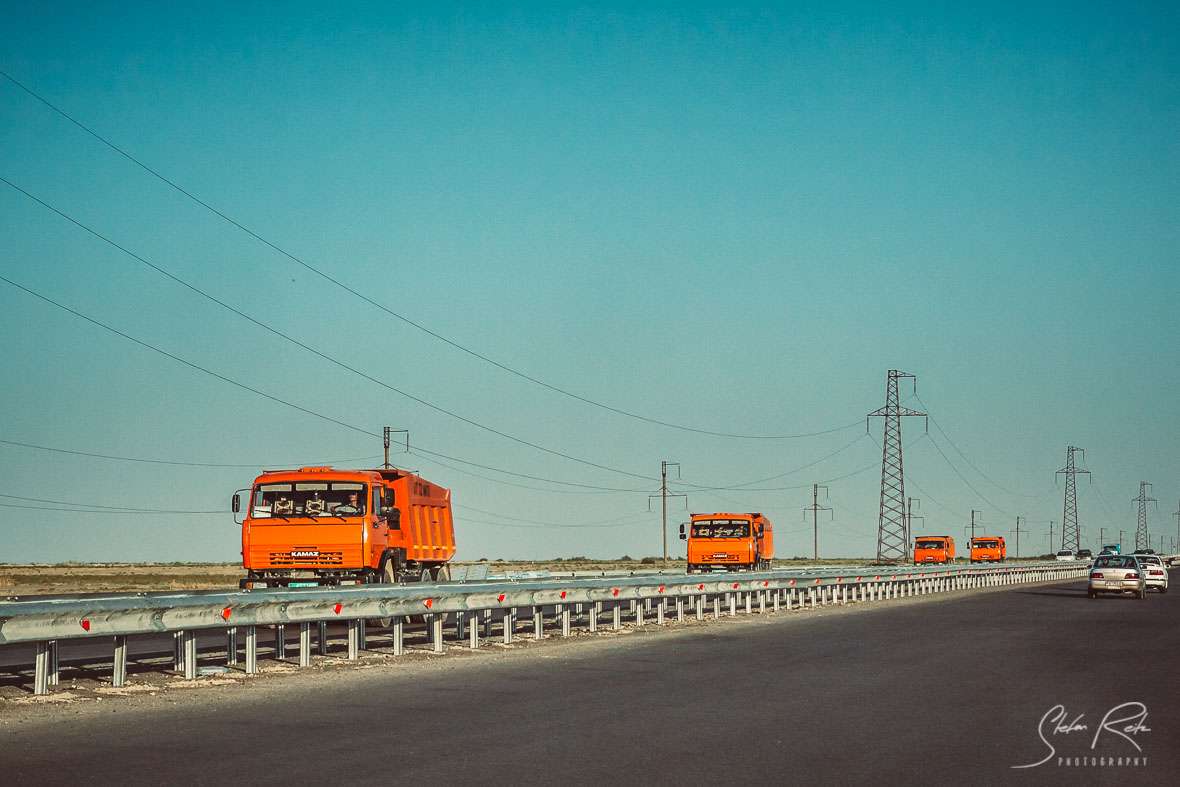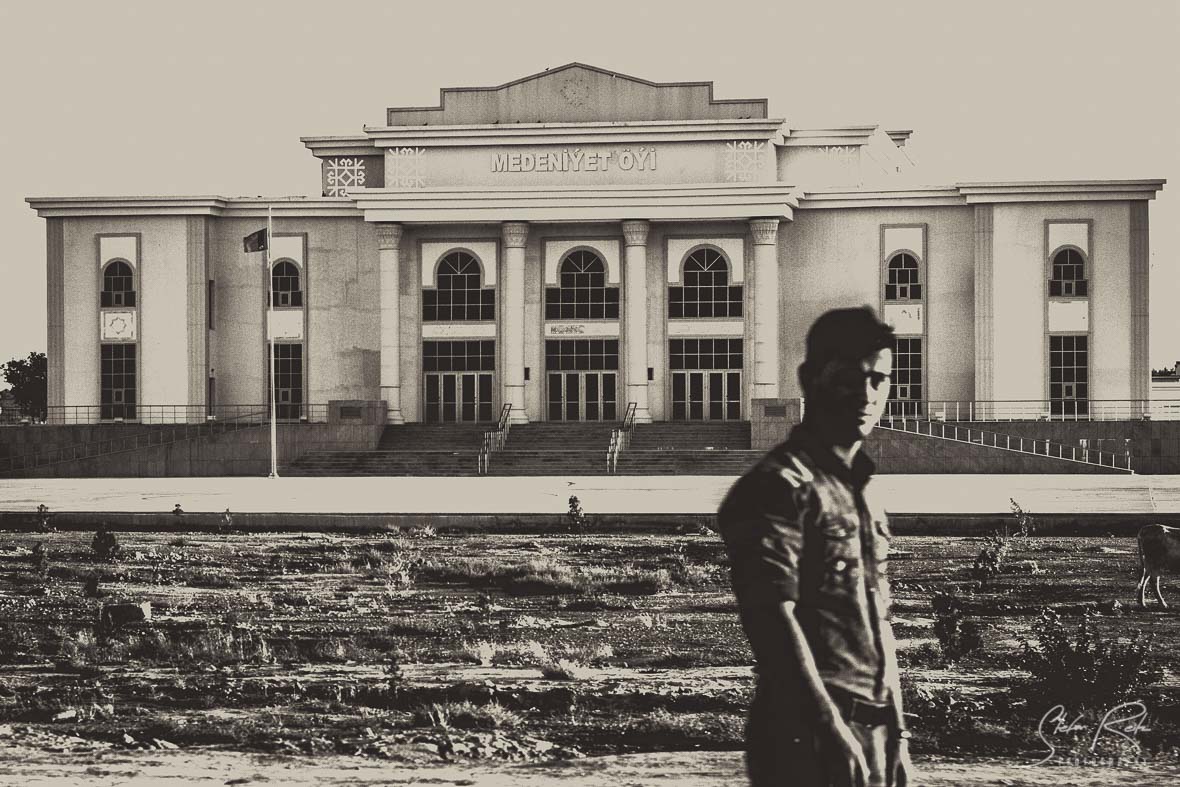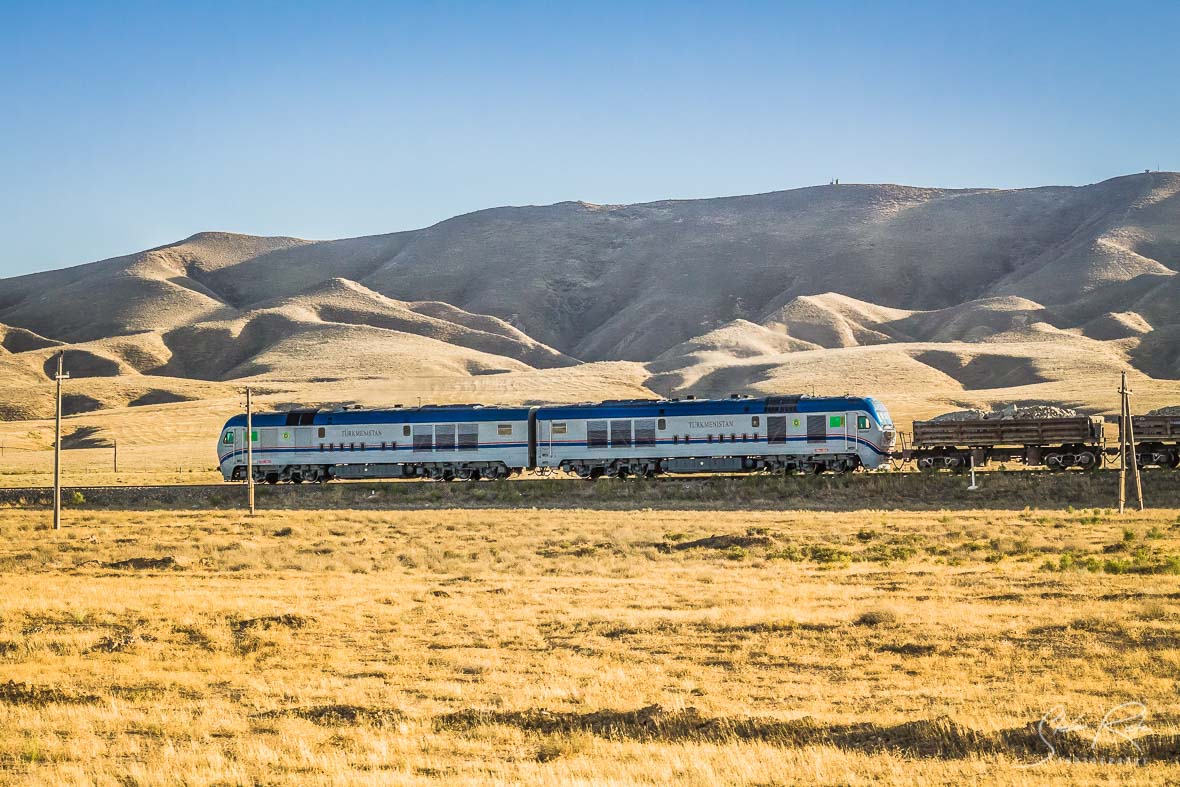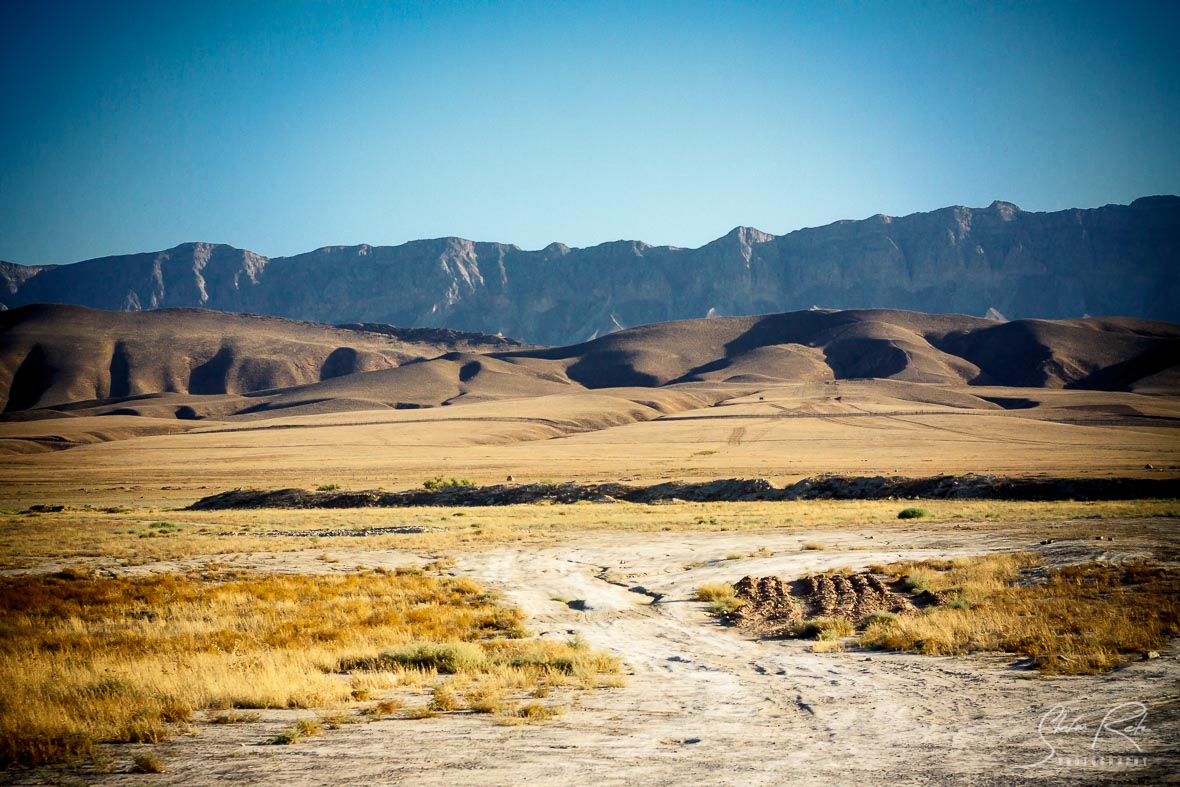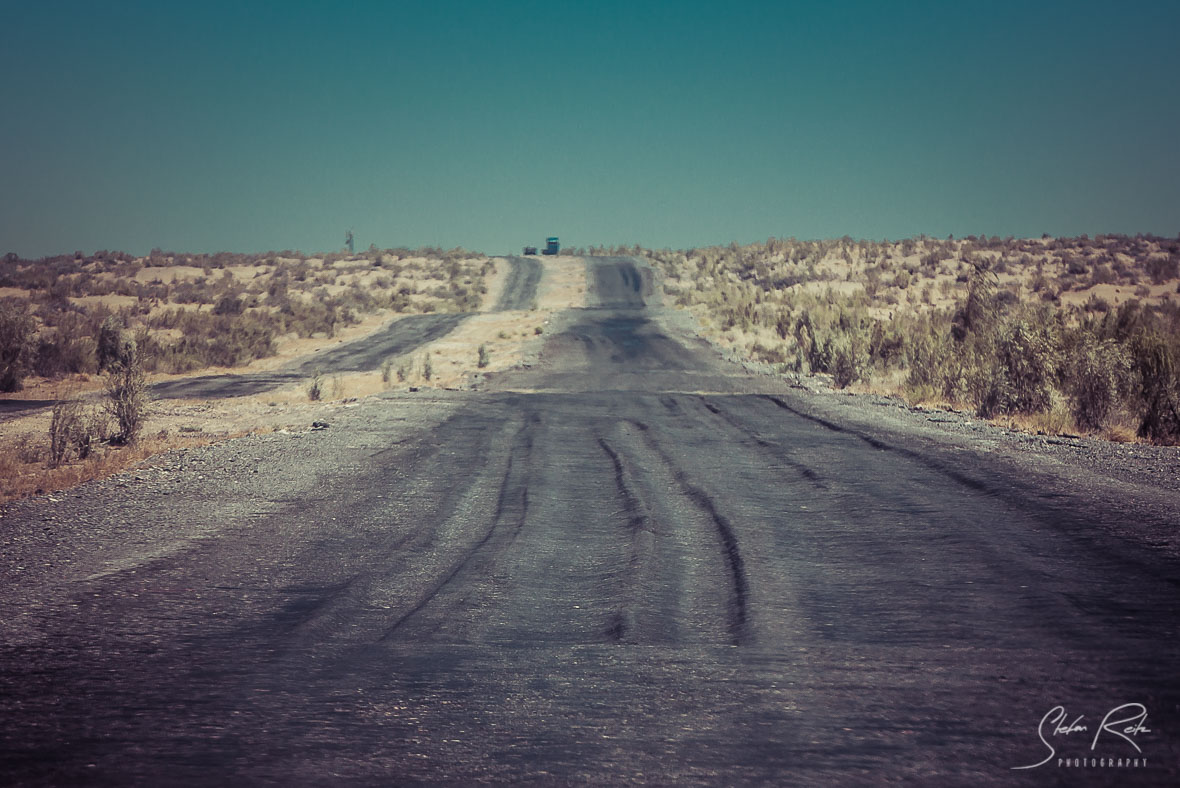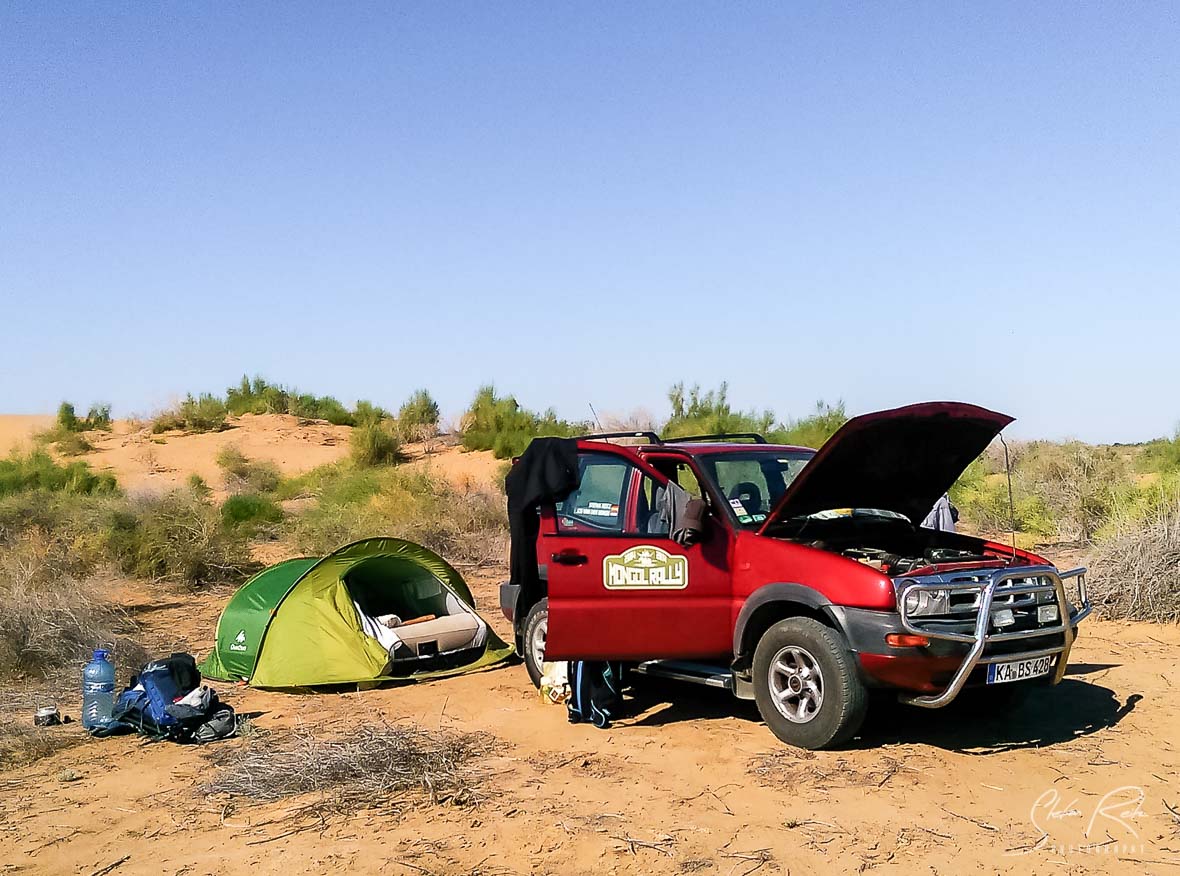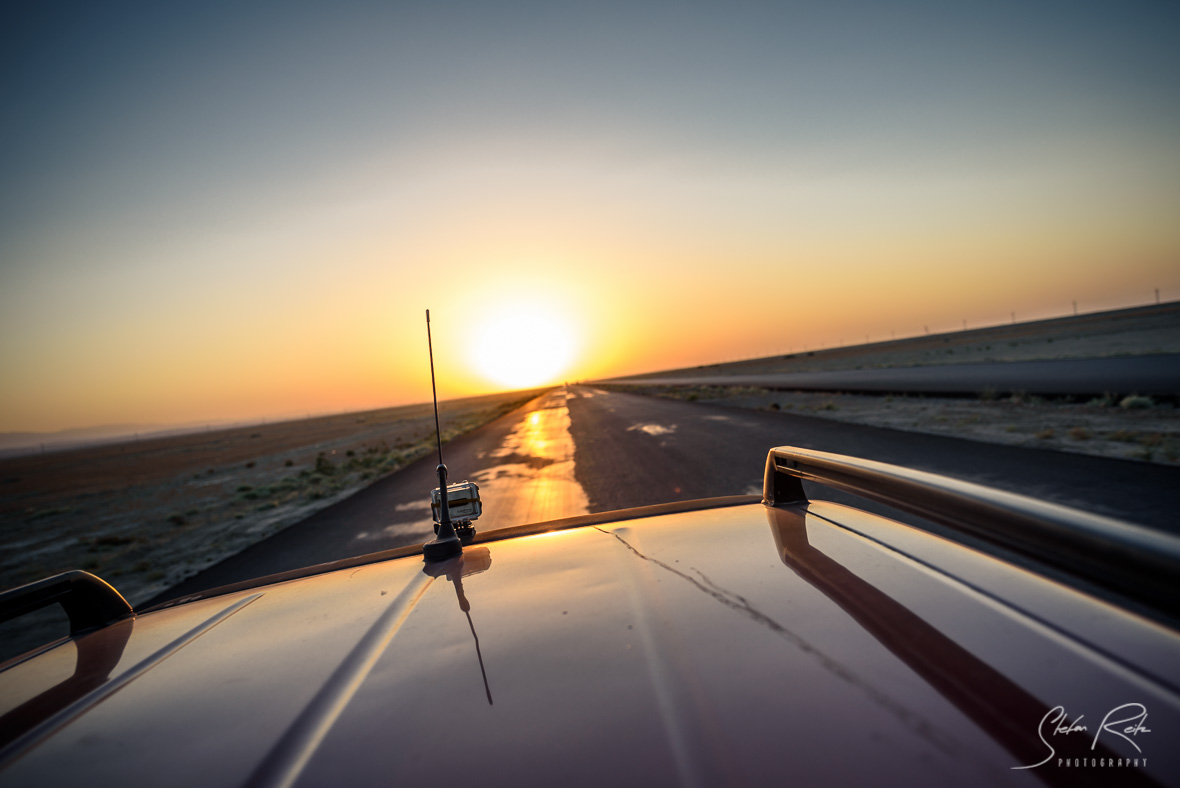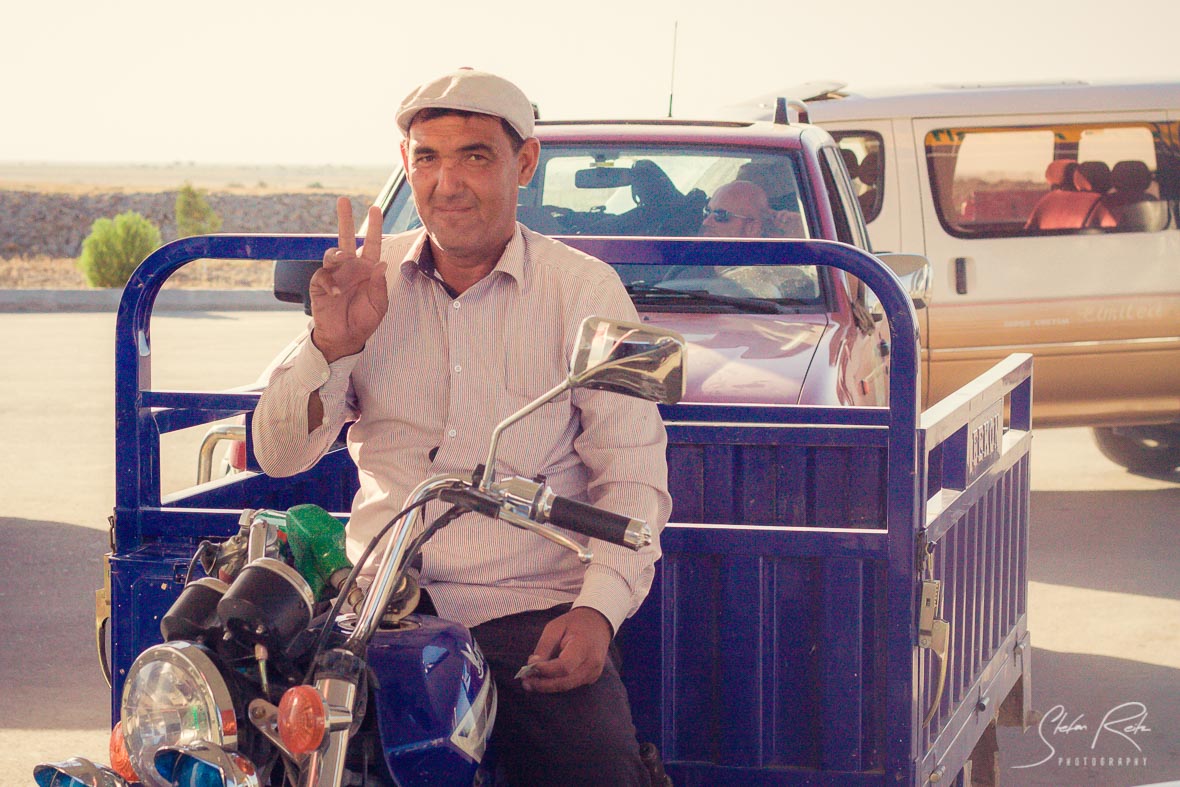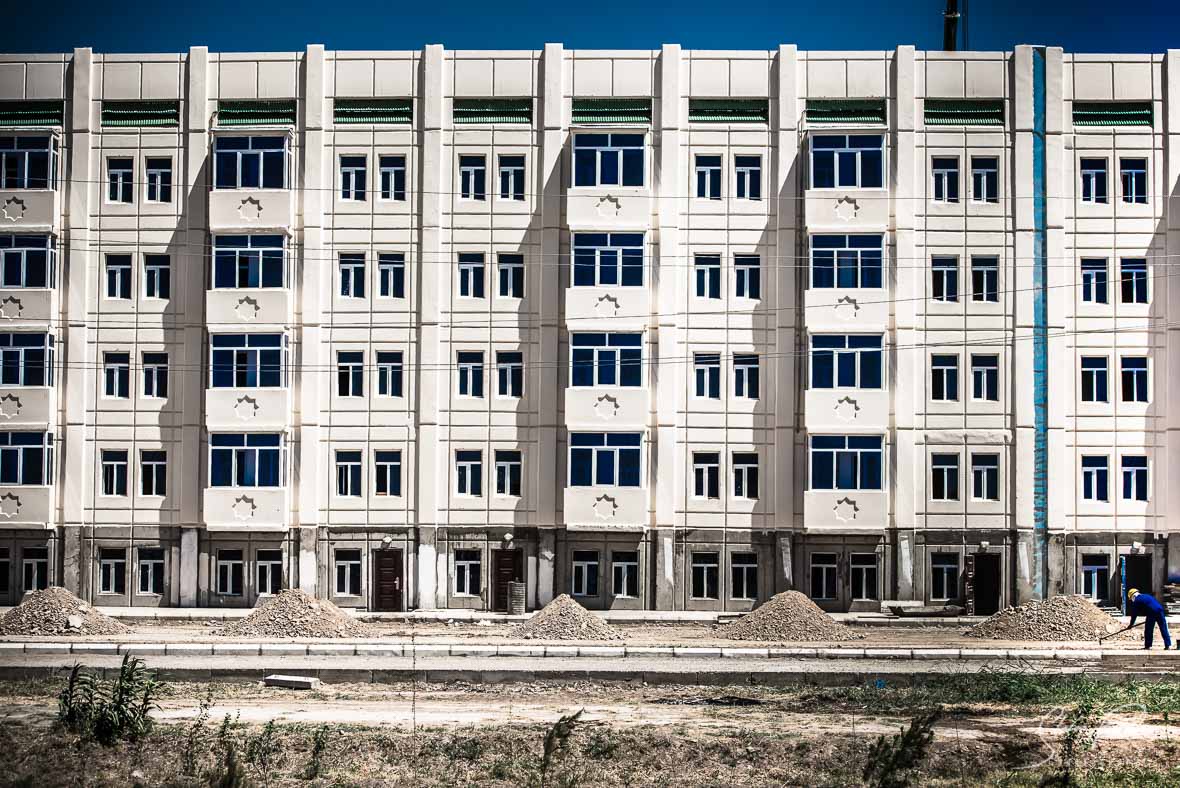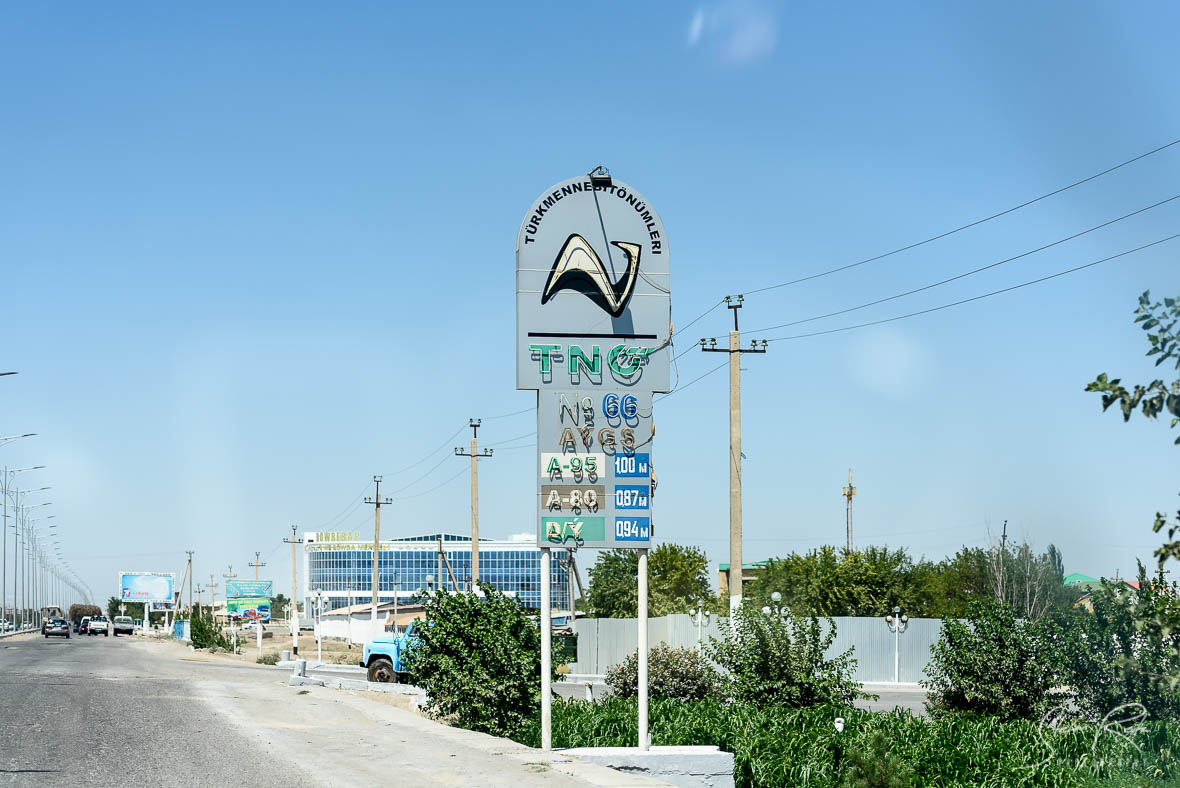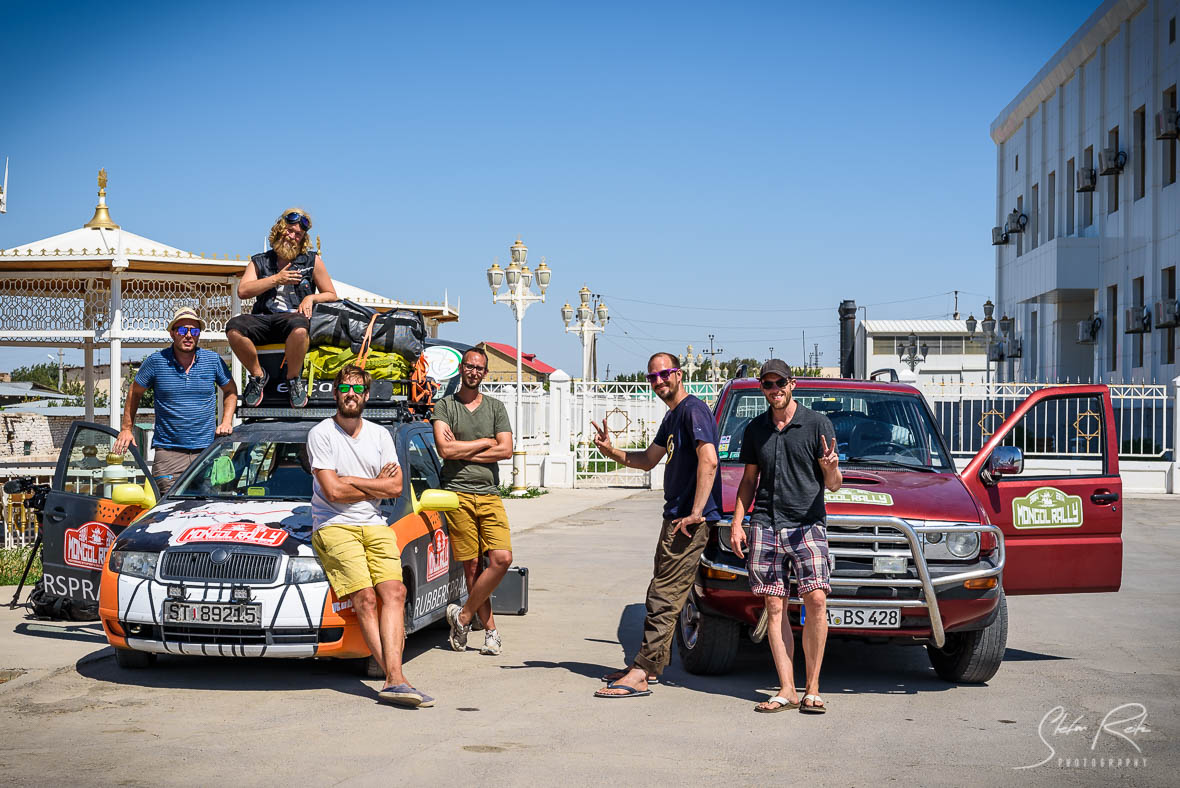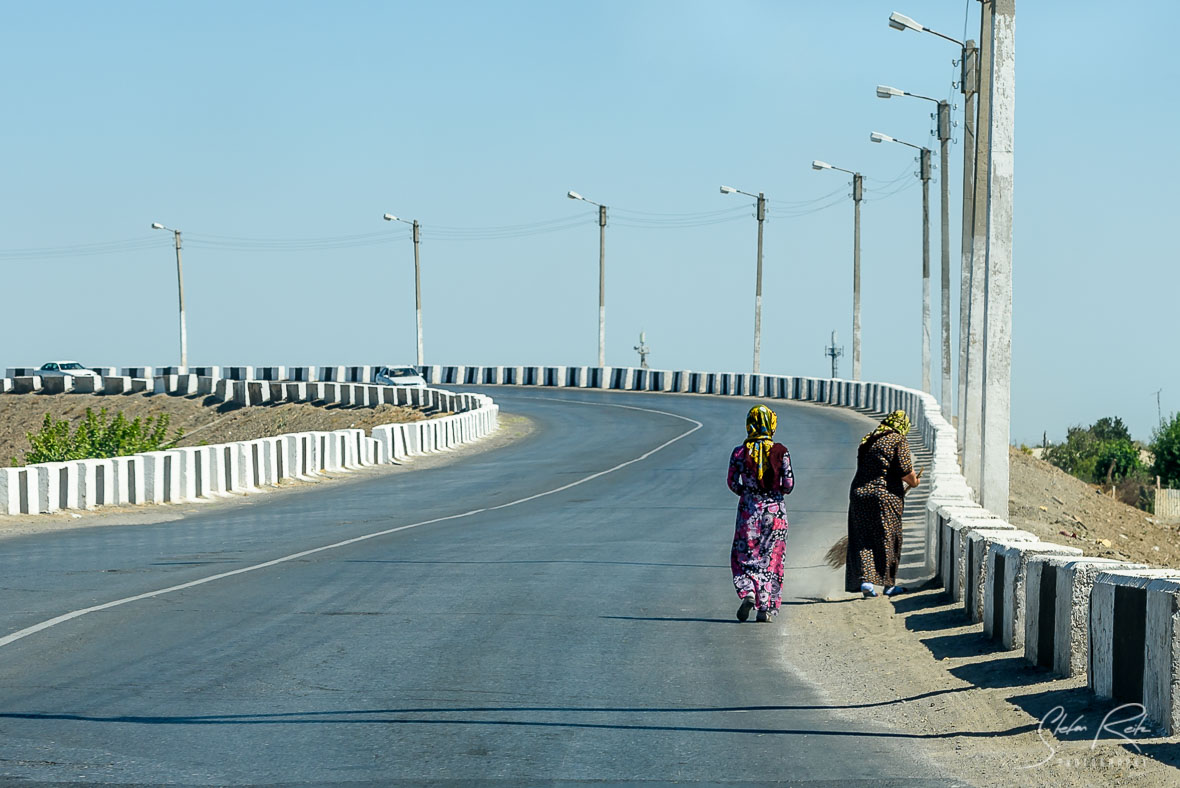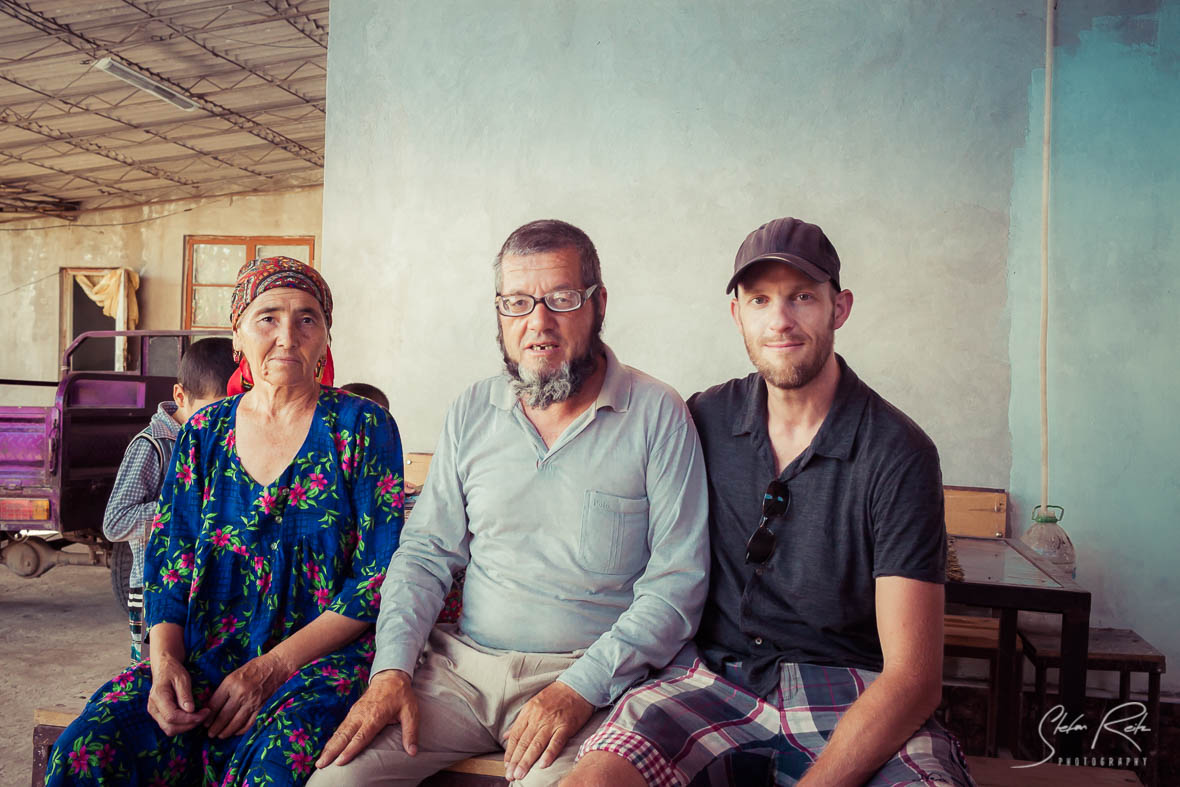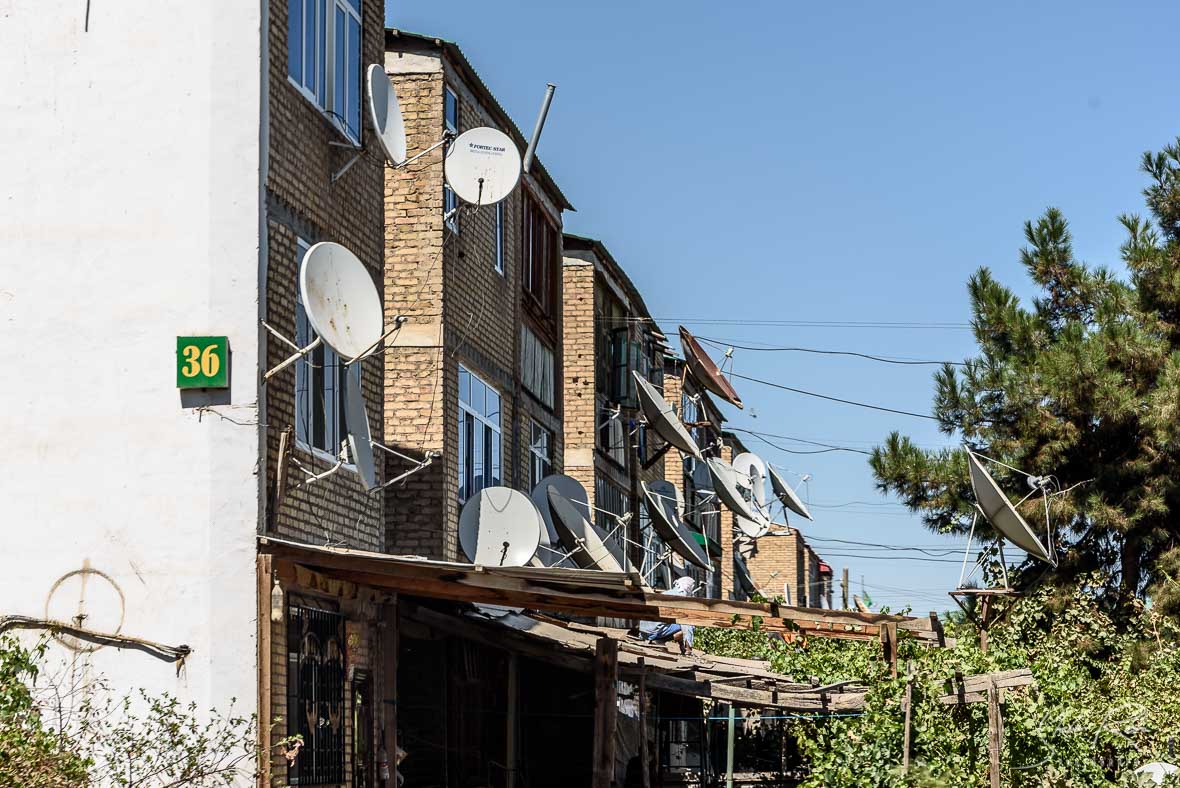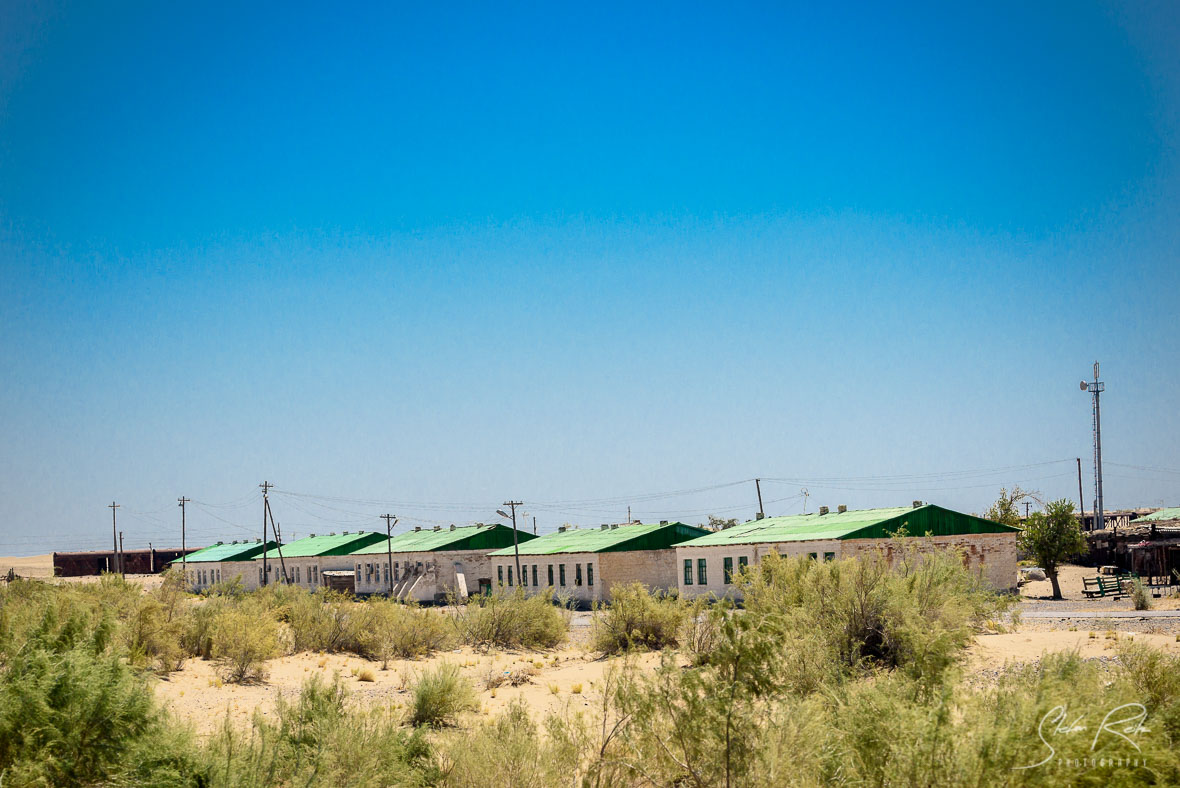Part 6: Turkmenistan
Given that we put up an astronomical deposit for our Carnet de Passage, we first made sure all the administrative formalities were taken care of. This proved to be about as complicated as entering Iran with the Carnet. As Stefan was preparing the car and driving to the x-ray check, Jos went into the Iranian customs office in order to make sure that all the necessary stamps were collected. Luckily he found an old comrade sitting there, Mohammed, who was able to guide the process quickly, so before long the Carnet was ready. This check proved to be the next hurdle in what was about to become our longest border crossing process thus yet. In the meanwhile, the other rally teams had been approached by a local weasel who told them the border crossing process would cost us 40€ per team, which didn’t seem entirely valid. Luckily, Mohammed organized his chef to come to the rescue, as he agreed that what the local was charging us for his services was outrageous.
Determined, but also a bit annoyed that he had to leave the comfort of his office, Mohammed’s chef trotted along to the x-ray station. When we arrived, Stefan had been smart enough not to give in to the local cutthroat and didn’t pay any fees. We went to the X-ray station’s desk, where we immediately noticed that it had been the right decision to get a second opinion. The customs agents and the local got into a serious discussion, none of which was understandable to us, except for the fact that the local was looking unhappier and unhappier. After drinking a cup of tea and determining the real price of the services (which was a measly 7€ for the x-ray administrative work), our car went through the x-ray without a hitch. After the final ok, weasel walked, decidedly annoyed with us, to the next station. This was a hall filled with dozens upon dozens of truck drivers: shit, this will take a while, Stefan correctly predicted. Filling in forms, filling in some other forms, copy some documents, waiting, filling in some more stuff, going to a different station to get a receipt and a stamp, renegotiating the fees and exchange rate: all in all it took us about an extra an hour to get out of it.
The only good thing about the whole ordeal was that we were there just before the three British teams, who would be there much longer as the customs official had written down completely wrong information on one of the documents that needed to be processed. We decided to say our goodbyes, wish them luck and went off to the next stop. We are being welcomed by some military personnel at the gates, that informs us that we missed the all-important passport stamp station. Being escorted one step back in order to get our official Iranian goodbye, we were able to pass into no-man’s land once again. After that we slowly drive on to the next stop, with no idea what was about to come on our way. Turkmenistan is notorious of getting into, which was exemplified by the difficulties we had to get even a simple transit visa for the country. Hence, we were a bit nervous about what was to come next.
Arrival
As we arrived we immediately noticed the difference with Iran: everything is brand-spanking clean. As in sterile, which reminded us a bit of Turkey. We are greeted by military personnel carrying Kalashnikov rifles and are being sent to the customs building. Although no one spoke a word of English, the first official was able to make clear to us that we had to fill in some forms, to which we were accustomed by now. What followed next was a two-hour-long carnival (the officials like to handle their “customers” in parallel instead of sequential, which made things wildly efficient of course) of being sent from one window to the next, with no one being able to explain what was happening. Tourist tax, car tax, highway tax, route planning (telling them where exactly we planned going), insurance, filling in this form, showing those papers, explain our purpose and travel plan: at least that is what we were able to figure out, but who knows whats really going on.
Luckily we got some rest in between, as the whole customs office decided to have an hour long lunch break in the middle of the day. Trying to get ourselves together, we sat down in front of the customs office in order to drink some water and smoke a cigarette. Which was obviously not allowed, as we were being told soon in no uncertain terms. Apparently, in Turkmenistan, a couple of things are not allowed: no alcohol, no drugs, no prostitutes, no Euro’s, no sitting here, no walking slow, no entering this room, no talking to the guard (no giving sweets to the guards either, just so you know), no hippies, no photos, no making jokes, no internet, no going to Ashgabat (which was luckily solved by paying some more baksheesh to the customs officials), no going this way, no going that way, just no ( this was just a small selection of all the things that were not allowed). After having waited patiently, we returned to the bank window thoroughly relaxed, where we had to pay more fees. Which, sadly, we couldn’t do in Euro’s (nor could we exchange money or find an ATM in no-man’s land. The only thing they wanted to accept was the mighty US Dollar, which of course we didn’t carry in sufficient quantities. After some haggling, we were able to convince the bank clerk that he would be “enjoying” our company for a very long time if he wasn’t going to take our Euro’s.
Given that we may not have been nice company at that point, the clerk chose to stay on the safe side and gave in and took our Euro’s at the worst rate he could possibly give us without crying his eyes out with laughter. One way or the other, we were happy that we could move things along, as the salty-sweet scent of sweaty truck drivers had made it almost impossible to stay in the customs office any longer. No offense – we were not smelling way better. Jos had to exit on one end of the building where, after a substantial discussion with the military guards, he was allowed to go outside to have a seat. Stefan on the other hand, had the pleasure of getting the car through the actual customs check. There he was greeted by 7 customs officials who, for the first time, turned the car inside out. Well, they didn’t really do anything, other than order Stefan to do all the work himself (and pack everything back again) and in the meanwhile belittle him by letting him explain to some local children why we had the luxury to do a charity rally to Mongolia.
The clock for the whole process, including Iran, finally stopped around the six hour mark. Afterwards we heard from a Norwegian team that they had the pleasure of 12 hours, which made our experience not all that bad. We were happy that we could leave, although we were about 200$ lighter because of all the taxes and god knows what kind of baksheesh. Stressed, tired and a little flabbergasted by the great contrast with the Iranian border we set on our way to the Turkmen capitol Ashgabat (which we had to pay extra road tax for).
To Ashgabat
On our way, we are greeted by one police check after the other. It’s a miracle that none of them decided to demand some more cash, as the Turkmen police are well-known for trying to get some extra income by extracting it from the scarce tourists. Given their reputation, we were anxious every time we saw one of their stop-signs along the road: luckily we had karma on our side once again. Karma was a thing we would be needing quite a bit in Turkmenistan, especially to survive their abhorrent road conditions. Although the local population seemed to be completely ignoring it by driving 150 km/h, we had to use our best driving skills in order to prevent us from hitting pothole after pothole.
You see, the roads in Asia are generally not of Formula1 track quality, but every country is a bit different. In Turkmenistan, the roads are actually quite good, with the exception of those aforementioned potholes, which come in droves and are generally large enough to fit a medium-sized Chinese child in them. Needless to say, the road conditions and potentially costly trouble with local police was enough for us to limit our cruise control to 80 km/h and cruise to Ashgabat. On our way we there, we found a landscape filled with absolutely nothing: this country is empty – except for the couple of little houses with their obligatory green roofs probably based on the color of the national flag here and there. From the border it took us only an hour or so to finally reach our goal for the day. When we drove into Ashgabat, we were greeted by large portraits of the great leader Gurbanguly Berdimuhamedow together with his megalomaniac building projects and group of white doves circling his head. I believe we just arrived in Pyongyang, Stefan said, and indeed it looked pretty north Korean: everything was extremely clean, shiny and made out of gold and marble (all of which was purportedly imported from Italy).
While driving through Ashgabat with it’s sterile streets we decided to look for a place to get something proper to eat but after one hour driving through what felt like suburbs in the middle of the city consisting of small, cheap built but very tiny houses we could not find a single restaurant. No shops, no restaurants, nothing. We decide to get something to drink first but need some local money to buy something so we park the car close to something that looked like an ATM but turned out to be a booth to charge phone sim cards. Well, a 7-feet-tall guy who looked like a cross-breeding of Duke Nukem and a white Shaquille O’Neal helped us. He asked if we need help and told us to follow him what we unquestioningly did. We followed Oleg, found the bank and tried to change at least 50€ to local currency. Well, we tried, but again they refused to take Euro’s at first which caused another delay. In the bank piles of money were lying around openly. The air-conditioning ran on maximum and everything was extremely quiet, no talking, no laughing. We exited the bank and finally found a semi-covered market. After successfully purchasing some fizzy drinks we sat down and decide to watch and see whats happening. Again we realized the oddly calmness of this city. Nobody talks. Nobody looks at you first. People were cleaning the roads constantly. After a while we’re joined by two boys who speak very poor but at least some English. One of them expressed his appreciation for Russia and Putin. Putin strong. Putin win. He told us he would like to work and live in Moscow, which is apparently his (and other locals) Mecca when it comes to any sort of recreation.
We decided that we wanted to smoke a cigarette but as soon as Jos pulls the cigarettes out of his pocket we are told that it is not allowed here. Hmm, ok, no problem. So we quickly walk outside and smoke there. But the guys insist that also that is not recommendable. Quote: “The police will do “click-clack” with you!”. So maybe better no smoking in public. We are being told that it is possible to sneak smoke – we just have to hide in a toilet which can be found in one corner outside of the market hall. Being not that desperate, we declined the offer, said goodbye to the guys and continue walking around the market instead. The stalls were modest and fairly empty.
Stefan decides to ignore the warning and takes some sneak shots – instead of sneak smoking. A weird but funny mix of oriental 90s-music is played from speakers as we continue to look around. Vodka is remarkably cheap (1,50€ per 0,7l). After talking to another guy who apparently knows a famous German dressing rider, we decide to go. Stefan tries to take some more hidden pictures but a lady from some market stall shouts that it is not allowed to do that. A really strange place with an even stranger atmosphere. We drive and tour around Ashgabat where grotesque marble buildings decorated with gold alternate with sparse low houses. Again everything is clean, everywhere. We cannot find a single peace of rubbish on the streets – and we were looking out for it. In the end this could be due to the fact that there is more people cleaning the streets than actually walking them. Apart from being clean the sreet scene it dominated by Toyota’s. They dominate the car market, maybe like Lada’s in communist Russia. At least 2/3’s of the cars are Toyota’s. Worth mentioning – the fuel price is even cheaper than in Iran, approximately 20 cents for one liter of petrol which we use to full capacity and refill all of our three Jerrycans as often as we can.
The door to hell & Türkmenabat
How long did the British still had to wait Stefan asks incidentally. No one knows Jos replied. The rally organization had the wrong information filled out their paperwork so it may well have lasted for the rest of the day. We heard of other rally drivers that 15 hours plus is no exception at that border. We will probably not see them again. Given the circumstances holding only the transit visa plus not being treated very hospitably we decide to leave the country as soon as possible. Unfortunately, by doing that, we do abandon the initial plan of visiting the famous “Door to Hell” in central Turkmenistan (a burning gas crater) yet the risk of being caught by some corrupt policemen or a car breakdown is not worth the risk. So instead we drive east towards the Uzbek border near Türkmenabat. We stay one night camping in the desert trying our best to be there on time, however the roads upset our plan. Potholes and ruts are demanding everything of both car and the drivers. The more east we drive the more the roads turn into a scree. A good grip to the wheel is really advisable. The landscape does not change considerably compared to the first impressions starting at the border westwards to Ashgabat. The Karakum (The Black Sand) desert dominates the overall impression. A vast and dry barren land.
As we finally arrive in Türkmenabat. Jos notices a car parked in front of a fancy building in the suburbs. It’s a Norwegian team shooting a documentary about the Official Mongol Rally for television. We chat about the film, about a drone which they have to take apart and smuggle because of Uzbek customs regulations. It is already past noon and we decide to continue as we want to complete a task a colleague of Stefan asked us about. He did a similar rally last year and wants us to deliver some pictures to a farming family where he stayed. The location is a bit unclear but we roughly know where to go. A hicktown southeast of Turkmenabat. On arrival, unable to locate the house, Stefan jumps out and walks towards a backyard. Knocking at some doors he finds a woman living there and shows her the pictures. Being slightly surprised she makes clear that it’s not the right family but she knows where to find them. Accompanied by her we walk to another house in the same street.
Entering the yard we encounter an old couple. The look on their faces is priceless. What is it those foreiners want? After a while we somehow understand that everybody is working in the fields at the moment. “Raboti, Raboti” in Russian is quite clear. Nobody speaks a single word of English so we spend the next 20 minutes turning down several invitations to stay for dinner, for tea, for staying a night. Without knowing exactly when the border will close we leave those nice people. When getting lost on dusty roads in the back-country without no clear direction (the offline apps are completely useless here leading us in some dead ends) another friendly family helps us getting back on the road we came from. After a few sandy and muddy streets covered with huge rocks and construction sites and a challenging reverse in an alleyway nearly running over a sheep that lay on the floor of a garage bunched for slaughter, we make it out of the village.
The last station
Short after reaching the final approach to the border we undergo an unexpected surprise. We have the pleasure of meeting our first Turkmen (dressed as) official since the border. The gentlemen express in round terms that in order to utilize a newly build bridge (the only bridge existing) we’re suppose to pay some 40$ which we do not possess at the moment. In total it’s three guys who want a slice of the pie. They walk away with our passports and discuss with each others. Other cars are passing without paying anything. As Jos gets out of the car trying to express his discontentment about the matter, the top dog of the pack becomes louder and louder shouting some inapprehensible curses faking his surprise that those foreiners really dare to challenge his best-practise approach to get some auxiliary income. After some minutes of wild discussion, bribing one of the guys with cigarettes another guy who speaks some words of English finally accepts our deal – all we have left (14$ as well as some Menats) is suddenly enough to pay the toll – together something around 25€. Finally they let us through. This whole situation of disputable legitimacy isn’t making us happy but for all that we will still make it to the border in time. We drive on country roads that stretch and stretch or rather seem so long because we want to leave. Eventually we come to a closed gate at the first border post. Closed? No. They let us pass not without asking for some “change”. We drive quickly to the next fence, locked gate. Two young smiling soldiers talk to us offering some watermelon being very polite and friendly which renews our good mood again. The last station – the border crossing. This time the hardest part is filling out the form in Turkmenian. Two guys stand around us, observing and feeling second to none. We have to declare our electronics. Everything is somewhat stiff but no more baksheesh is payed. After a final check by a rifle-holding soldier we can continue to the Uzbek border. The Turkmen people outside of Ashgabat were a true compensation and the country, with it’s ancient silk-road cities like Merv or Misri surely has to offer way more than we were able to catch, however, the first impression as a a post-modern stalinist totalitarian regime still sticks around in our heads.
